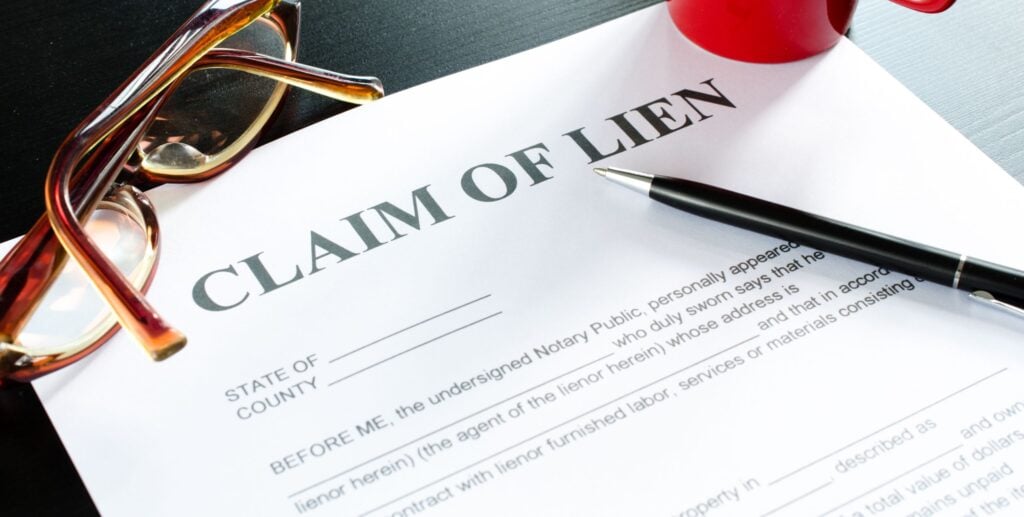All Categories
Featured
Table of Contents

You are not being given any kind of residential or commercial property rights. There is a three year redemption duration for most homes cost the tax obligation lien sale and during that time, the residential property still comes from the assessed owner. Very few real estate tax liens in fact go to act. Tax obligation liens not sold at the sale are held by the region and are typically available for purchase from the treasurer's workplace.
The rates of interest on tax obligations bought at the tax obligation lien sale is nine portion factors over the price cut price paid to the Reserve bank on September 1st. The price on your certificate will certainly continue to be the very same for as long as you hold that certification. The rate of return for certifications marketed in 2024 will be fourteen percent.

The certificates will be held in the treasurer's office for safekeeping unless or else advised. If the taxes for ensuing years become overdue, you will certainly be alerted around July and provided the opportunity to endorse the taxes to the certifications that you hold. You will get the exact same rate of interest on succeeding taxes as on the initial certification.
You will not be reimbursed any type of costs. If the certification remains in your ownership you will be informed to return it to our office. Upon receipt of the certificate, you will obtain a redemption check. The redemption duration is 3 years from the date of the initial tax sale. You will certainly get a 1099 type showing the amount of redemption passion paid to you, and a duplicate will certainly likewise be sent to the IRS.
Investing in tax liens and deeds has the potential to be rather lucrative. It is additionally possible to spend in tax obligation liens and actions with less capital than may be required for other investments such as rental properties.
Tax Lien Investing Secrets
Tax liens might be imposed on any kind of type of residential property, from raw land to homes to industrial residential properties. The policies bordering the kind of lien and just how such liens are provided and retrieved differs by state and by region. There are two major classes, tax liens and tax deeds. A tax lien is issued quickly once they home proprietor has stopped working to pay their tax obligations.

Such liens are then marketed to the public. A financier purchases the lien, therefore providing the municipality with the required tax obligation earnings, and after that deserves to the residential property. If the homeowner pays their taxes, the investor normally obtains rate of interest which can be in the variety of 12-18%.
Tax obligation liens and deeds supply the possibility for generous return on investment, potentially with lower amounts of capital. Tax obligation lien investing is focused on the collection of interest and charges (where offered) for the tax financial obligation.
The procedure for investing varies by state and by county. A lot of liens and acts are sold at public auction, with some auctions taking location in-person at a county court house, and some happening online. You will typically require to register ahead of time for such auctions and might be called for to position a deposit to participate.
Best Books On Tax Lien Investing
In some jurisdictions, unsold liens or deeds might be readily available available "nonprescription" from the area staff's office or web site after an auction has been finished. Prior to joining an auction, you will wish to execute research to identify those homes you might want and ensure there are no difficulties such as other liens that might require to be settled or problems with the residential or commercial property itself that may create concerns if you were to take control of ownership.

This may call for the issuance of a cashier's check or cable from your strategy account. You will certainly then require to wait out any kind of redemption period as permitted by law. This duration is indicated to provide the homeowner an opportunity to resolve their financial debt with the taxing authority. With a lien, redemption means that your IRA or 401(k) will certainly obtain a payday, with rate of interest and any kind of appropriate fines being paid.
Tax obligation lien and act investing is a location where checkbook control is a must. You require to be able to provide funds straight on brief notice, both for a deposit which needs to be registered in the strategy entity name, and if you are the winning bidder. With a Checkbook Individual Retirement Account LLC or Solo 401(k), you can straight make such payments from your plan account without delays or 3rd event fees.
If you make a deposit and are not effective in bidding at public auction, the down payment can merely be returned to the strategy account without trouble. The a number of days processing hold-up that features functioning directly via a self-directed IRA custodian just does not operate in this space. When investing in tax liens and deeds, you need to make sure that all tasks are performed under the umbrella of your plan.
All costs linked with tax lien investing have to come from the strategy account straight, as all income produced have to be transferred to the plan account. is tax lien investing a good idea. We are typically asked if the strategy can pay for the account holder to attend a tax obligation lien training class, and recommend versus that. Also if your investing tasks will certainly be 100% via your plan and not involve any individual investing in tax obligation liens, the internal revenue service can consider this self-dealing
Tax Lien Investing California
This would additionally hold true of acquiring a property through a tax obligation deed and after that holding that building as a service. If your method will certainly entail getting homes simply to turn about and market those homes with or without rehabilitation that can be deemed a supplier task. If executed often, this would certainly expose the IRA or Solo 401(k) to UBIT.
Just like any financial investment, there is risk connected with investing in tax liens and deeds. Financiers must have the financial experience to gauge and understand the risks, execute the necessary persistance, and correctly carry out such investments in conformity internal revenue service regulations. Guard Advisors, LLC is not a financial investment expert or carrier, and does not suggest any kind of specific investment.

The details over is instructional in nature, and is not planned to be, neither needs to it be understood as providing tax obligation, lawful or investment guidance.
Secrets Of Tax Lien Investing
Lien imposed on building by legislation to safeguard payment of taxes Pima County, Arizona delinquent real estate tax list for public auction by the Region Treasurer A tax lien is a lien which is enforced upon a property by law in order to protect the repayment of taxes. A tax lien might be imposed for the purpose of gathering delinquent tax obligations which are owed on real estate or personal effects, or it might be imposed as a result of a failure to pay earnings taxes or it might be imposed as an outcome of a failing to pay other taxes.
Internal Profits Code area 6321 supplies: Sec. 6321. LIEN FOR TAXES. If any type of individual accountable to pay any tax obligation forgets or refuses to pay the exact same after need, the quantity (consisting of any rate of interest, additional quantity, enhancement to tax, or assessable charge, along with any type of expenses that might build up additionally thereto) shall be a lien in favor of the United States upon all property and civil liberties to residential property, whether actual or personal, coming from such person.
Is Investing In Tax Liens A Good Idea

Division of the Treasury). Generally, the "person reliant pay any tax obligation" defined in area 6321 has to pay the tax within ten days of the written notice and need. If the taxpayer fails to pay the tax obligation within the ten-day duration, the tax lien develops instantly (i.e., by procedure of regulation), and is effective retroactively to (i.e., develops at) the day of the assessment, also though the ten-day duration necessarily ends after the analysis day.
A government tax lien arising by regulation as defined above is valid against the taxpayer with no further activity by the federal government. The general guideline is that where two or more creditors have contending liens versus the very same property, the creditor whose lien was improved at the earlier time takes top priority over the creditor whose lien was refined at a later time (there are exceptions to this guideline).
Table of Contents
Latest Posts
Sale Tax Properties
Tax Defaulted Property Auction
Certificate Investment Lien Tax
More
Latest Posts
Sale Tax Properties
Tax Defaulted Property Auction
Certificate Investment Lien Tax